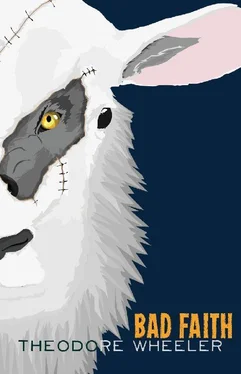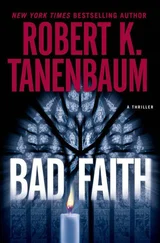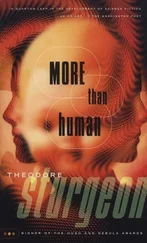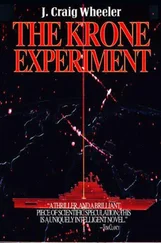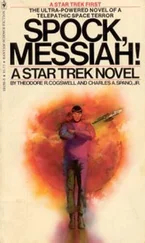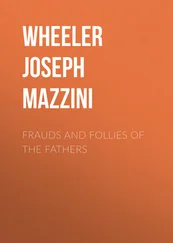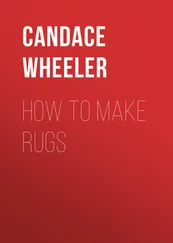I wasn’t going to do this, of course, merely because this crazy man had insulted me. Even though it felt counterintuitive at the time, I knew that the mentally ill hardly ever deserved to get punched.
By this time his girlfriend had come out on the porch. “Jimmy,” she called, her hands on the banister as she leaned toward us. Motts was sitting on the sidewalk then, rubbing the shape out of his hair, blinking.
“I’m leaving,” I said. I climbed into my truck.
“No,” he shouted. He crawled into a teetering squat to face me. “Don’t!”
Motts couldn’t back down, even though the fight had ended.
“This isn’t over, you pussy. You didn’t even throw a punch.”
Somehow, even as I drove away, I knew I’d soon be back.
When I’m alone at night I often think of sitting with my parents in the living room of their old house. We talk about world news and debate theology, but it’s an imaginary dialogue. My parents never sat together on the couch like that, engaging me in their pleasant conversation, no matter how much it eases my mind to pretend they did.
In the fantasy my dad sits with his legs crossed, a look of unyielding compassion on his face. He says, “Get with it, son. Take off out of here.”
He’s wearing a sharp outfit, neutral colors. My mother’s hair is done beautifully. The soft smell of her lotion fills the room.
“You’re smart,” she says. “Make an honest impression on people.”
These dreams hold appeal for me now, they always have, and they surely did in the days I volunteered with CAP. I thought about the ways my life could have been different, if only we’d known the right things to say to each other, me and my parents.
I’m from the dust-bowl part of Nebraska, near McCook, the only child of an Episcopalian minister. My childhood was a chaotic one, filled with self-incriminations and crimes of passion. Everyone knew I was a wild kid, but my father had it in his mind that he could keep me in check.
“Satan isn’t in you,” he’d reassure me, holding my shoulders. “It’s just a restlessness. God has a plan for you.”
It hadn’t yet occurred to me that I was possessed by the devil. Sure, there were things I’d done. Tasteless pranks. More than a few dramatic flashes of brattiness in front of relatives and neighbors. But they didn’t matter much in the grand scheme of things. They weren’t evil acts.
The real trouble started after I left for college. A string of MIPs and DUIs followed my initiation into a fraternity. My grades were adequate, but my moral certitude was flagging. My father was a strong believer of so-called small-town values. He suggested that maybe the state capital, or a libertine school, wasn’t the best place for me, that I should come home. But I didn’t agree and was eighteen years old. It was important I learned to stay out of trouble on my own, I insisted, then remained in school.
It wasn’t until eight years later that I saw my father again. He bulged around the middle, but the rest of him was sickly, thin, weak from worry, I thought. He was bald, with just a few wisps of red hair around the sides of his head and a sparse mustache.
At the time, my career in corporate hospitality was hanging by a thread, my whole life edifice. I had a job with a good sound to it, but no real money to my name. Nice clothes, but a dirty, one-room apartment behind a Szechuan restaurant. I was living in the student district of Lincoln, which was a major mistake, looking back. If I’d wanted to remain employed, partying six nights a week with undergrads was a poor decision. But I don’t regret it. The past doesn’t work that way. Your whole life is tied together; if one string is pulled, others are going to come with it.
My father summoned me home that summer because he heard a rumor from one of his parishioners about a certain McCook girl. This gossip had the stain of sexual misdeed. A freshman coed tricked into dangerous situations by an older man, plied with alcohol, and, eventually, shuttled to an abortion clinic. I’ve forgotten some of the things he accused me of, but they were all true. She was a student at Wesleyan, a confused thing when I found her. A hippie redneck invested in tie-dye tee shirts, hemp purses, and cowboy hats. I never saw her again.
When he cornered me on it, I told my father that I would never again embarrass him, something neither of us believed.
“Why can’t you treat women right?” he kept asking. “Why can’t you treat anyone the way you want to be treated?”
On this point the pastor didn’t understand me — I was trying to live by that creed.
It was true I’d been a bastard to just about everyone I knew, but life wasn’t exactly kind to me in those years either. My job was beyond saving, even if I’d cared to keep it. My car had been repossessed. My shitty apartment remained the same. Later, there was the car crash that took my parents. (This was my harshest failure, my parents’ deaths — the one that cut closest to my murmuring heart. Do you understand what I mean? I think you do.) I sought out hardship and easily found it, going from one troubled woman to another, unable to love. I was a starvation artist, a masochist, which was okay, so long as it didn’t hurt anybody else. The problem was that I couldn’t control the flow of misfortune. It spread all around me.
Three years later the Big Man discovered me in detox. He did his own recruiting in those fledgling days, lurking in the dark corner of my cell. He was still a young man then, in a gray suit with a silver tie, his hair moussed over his big Italian skull. His was a voice I could listen to. I’d been on a long meandering drunk since my parents died, and MTR offered a job that built character in a certain way. Perhaps I was weak when he found me, or maybe it was restlessness, as my father once believed. Whatever the reason, I accepted his proposal. What the Big Man told me was irresistible — that any man who doesn’t pursue his salvation will find only ruin. This was my chance to atone for my misdeeds.
MTR was a family business at the time, a dozen of us across four noncontiguous states. The Big Man trained each of us personally, took us to hardware stores to purchase the tools of our trade, stayed for a month’s worth of assignments to demonstrate how revenge work was properly done, accompanied us to twelve-step meetings, and then let us loose to do the job we’d been charged with. He allowed me to throw myself into the work, to mask my grief by burying it in the misfortune of others.
Not long after the incident with Jimmy Motts, Frank called me into his office. He was crouched at his desk with a hand half covering his face, the worn tie dangling between his knees.
“I hate to say it, Dandrow, but you might not be cut out for this kind of work.”
I sat across from him and tried to see what was written in the file he read from.
“There are troubling reports,” he explained. “There are complaints.”
“Was I rude to someone?”
“No, it wasn’t rudeness. They all think you’re a peach of a person. Not sure how you did that , but whatever. If they like you, I can like you too. I appreciate what you’re trying to do.”
I didn’t understand what he was saying and feared it had to do with my past, with MTR or something surrounding the estate of the old man, a lawsuit. It was almost winter then. His office was dark in the weak morning light.
“This isn’t easy to say. You’re bad at charity work.”
He seemed like he wanted to laugh at the absurdity but was resolved not to. His face red from the strain. Frank may not have liked me, but that’s a funny thing to have to tell someone.
“Your heart is there, I believe, but the particulars don’t happen for you.”
Читать дальше
